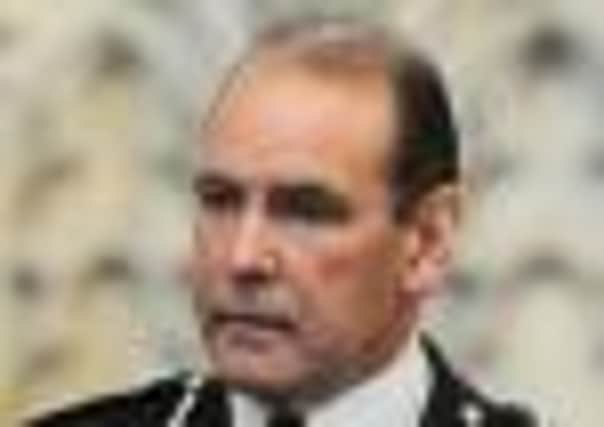Hillsborough chief used authority for self-interest


• Bettison resigned in 2012 before IPCC case was heard
• Chief constable tried to “manipulate” public perception
The Independent Police Complaints Commission (IPCC) said Sir Norman Bettison, who resigned from his post as the West Yorkshire chief last year, would have had a case to answer for gross misconduct if he had still been a serving officer.


Lawyers acting for Sir Norman pointed out their client has not been found guilty of anything and said the IPCC’s inquiry “calls into question the fairness of such a process”.
Advertisement
Hide AdAdvertisement
Hide AdSir Norman, who has always denied any wrongdoing, resigned in October saying it was because the controversy had become a “distraction to policing in West Yorkshire”.
He was a chief inspector with South Yorkshire Police at the time of the disaster and attended the match in April 1989 at Sheffield Wednesday’s ground as a spectator.
After the tragedy, which left 96 Liverpool fans dead, he took part in the subsequent force investigation. Claims about his role in that controversial inquiry provoked criticism from the families of those who died which have dogged his career.
After the Hillsborough Independent Panel report was published last year, with its detailed evidence of South Yorkshire Police’s attempts to manipulate the story of what happened, Sir Norman came under increased pressure. His police authority asked the IPCC to look at his role following the disaster, and this investigation is continuing.
Yesterday’s report related to a separate referral to the commission after allegations he interfered with the main referral process. According to the IPCC, the issue was Sir Norman’s desire to refer himself to the commission and, therefore, control the process. The report concluded: “It is concerning that his first thoughts appear to have been to protect his own position.”
It added: “While it was evident Sir Norman made no attempt to prevent the referral happening, the IPCC investigation concluded that he attempted to manipulate the public perception of the referral process for his own self- interest.”
The commission said the former chief constable “had a case to answer for discreditable conduct and abuse of authority, breaches which, if proven in a disciplinary hearing, would amount to gross misconduct as they would justify dismissal”.
Sir Norman’s solicitor, John Harding, said the commission’s finding was not a finding of guilt and, because there was no disciplinary hearing, Sir Norman did not have the opportunity to challenge evidence.
He said his client “is denied the opportunity to put his case and challenge other evidence, which calls into question the fairness of such a process”.